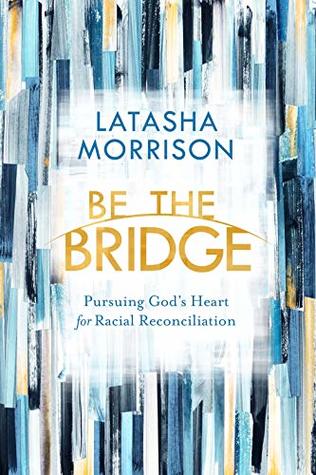More on this book
Community
Kindle Notes & Highlights
Read between
June 5 - June 7, 2020
Is the church at large, and are we as individuals, currently making any contribution to healing the divisions? Or are we making things worse?
When we lack historical understanding, we lose part of our identity. We don’t know where we came from and don’t know what there is to celebrate or lament. Likewise, without knowing our history, it can be difficult to know what needs repairing, what needs reconciling.
They equated working hard with success, and they dismissed the reality of systemic issues that create barriers for people of color. They’d never been followed in a department store for being Black, never been stopped and questioned simply for walking down the street.
If you’re White, if you come from the majority culture, you’ll need to bend low in a posture of humility. You may need to talk less and listen more, opening your heart to the voices of your non-White brothers and sisters. You’ll need to open your mind and study the hard truths of history without trying to explain them away. You’ll need to examine your own life and the lives of your ancestors so you can see whether you’ve participated in, perpetuated, or benefited from systems of racism.
As they became educated, as they stepped into empathy, they realized just how hurtful some of their comments had been.
The truth is that each ethnicity reflects a unique aspect of God’s image. No one tribe or group of people can adequately display the fullness of God. The truth is that it takes every tribe, tongue, and nation to reflect the image of God in his fullness. The truth is that race is a social construct, one that has divided and set one group over the other from the earliest days of humanity. The
4 In the love of the family of God, we must become color brave, color caring, color honoring, and not color blind. We have to recognize the image of God in one another. We have to love despite, and even because of, our differences.
Race, as we know it, is a political and social construct created by man for the purpose of asserting power and maintaining a hierarchy. When we believe the lies embedded with racial hierarchies, reconciliation becomes impossible.
relationships. If we avoid hard truths to preserve personal comfort or to fashion a facade of peace, our division will only widen. Jesus can make beauty from ashes, but the family of God must first see and acknowledge the ashes.
solidarity. Empathy would allow her to sit in someone else’s pain.
What is the purpose of lament? It allows us to connect with and grieve the reality of our sin and suffering. It draws us to repentant connection with God in that suffering. Lament also serves as an effort to change God’s mind, to ask him to turn things around in our favor. Lament seeks God as comforter, healer, restorer, and redeemer. Somehow the act of lament reconnects us with God and leads us to hope and redemption. But it’s no secret that we as a culture are uncomfortable with
But in the Bible, guilt and shame aren’t described in such a narrow individualistic sense. In the Bible, guilt and shame are often
communal and point to the need for corporate repentance.
Bridge builders don’t refuse confession just because the wrong done to them feels greater than the wrong they’ve done.
The answer to white supremacy isn’t black supremacy. The answer to colorism within the majority systems is not corresponding colorism among non-White groups. Any supremacy, any colorism, should be acknowledged and confessed if we’re to find hope of healing.
Maybe he couldn’t understand how true forgiveness, reparative forgiveness, can be experienced only when we first make space to feel the weight of grief, mourning, and lamentation and then, in the face of all of it, offer forgiveness.
I have almost reached the regrettable conclusion that the Negro’s great stumbling block in his stride toward freedom is not the White Citizen’s Counciler or the Ku Klux Klanner, but the white moderate, who is more devoted to “order” than to justice;
Let us beware of vain and overhasty repentance, and particularly let us beware of no repentance at all…. A man can believe in total depravity and never have any sense of it for himself at all. Lots of us believe in total depravity who have never been wounded with the knowledge that we’ve sinned. Repentance is a wound I pray we may all feel.8
White Awake: An Honest Look at What It Means to Be White.19
We don’t necessarily need to have the answer when we’re engaged in the process of bridge building. We don’t always need to know how every wrong will be righted and every system fixed. In fact, we’ll often find that the process goes more smoothly when we confess we don’t have the answers but are willing to seek them together. We begin with a willingness to do the hard work of reconciliation, the work Jesus modeled. We begin by making space for one another, making space for restoration. And if we do it right, we do it all in love.
When we realize we’ve settled for comfort instead of following conviction, we have to be willing to shake things up, even if stepping into our calling leads us into deep pain and discomfort.
Because Jesus said as much in both the Greatest Commandment and the Great Commission.


